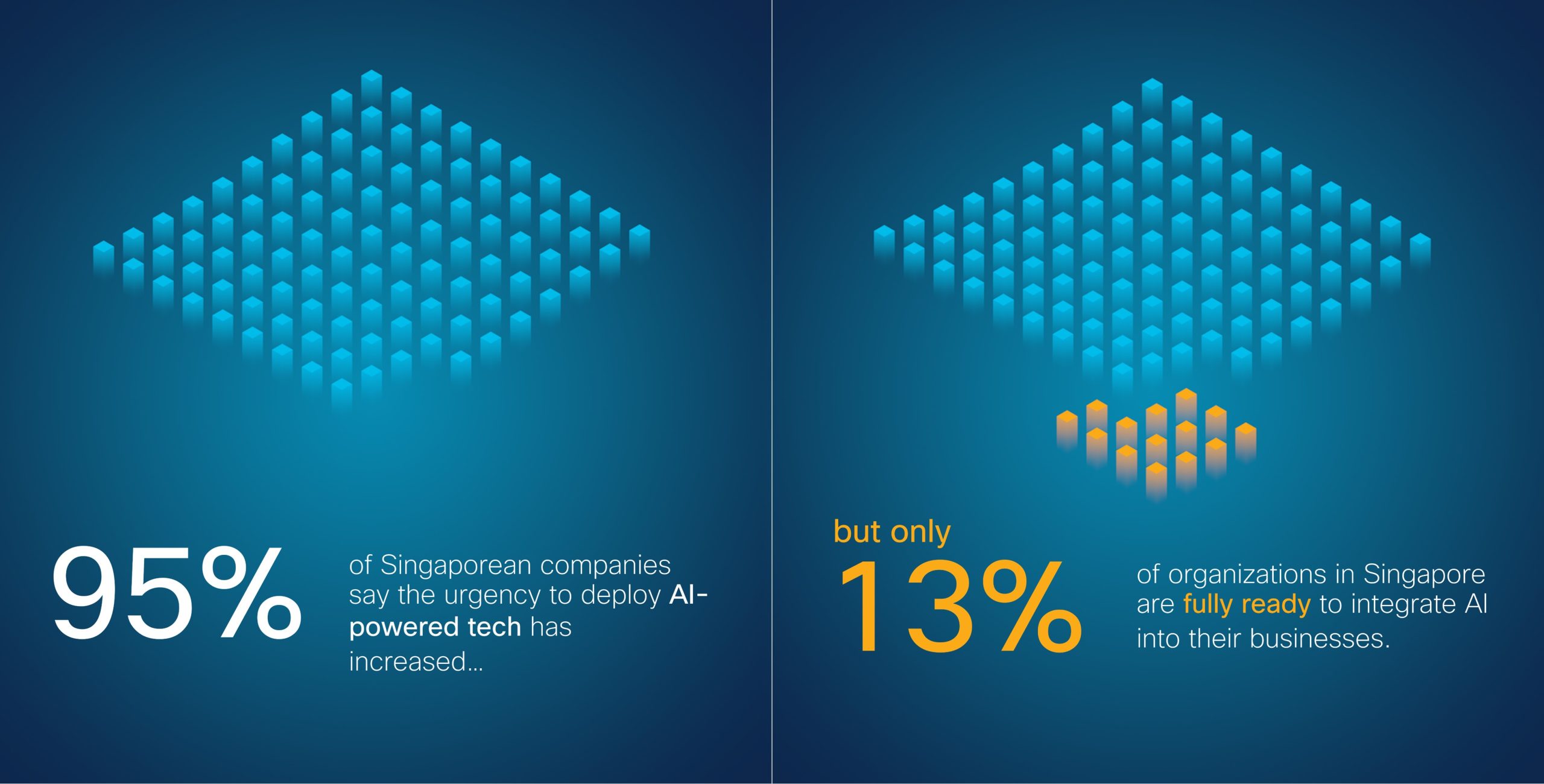In a groundbreaking revelation, Cisco (NASDAQ: CSCO) unveils its inaugural AI Readiness Index, indicating that a mere 13% of organizations in Singapore are fully prepared to deploy and leverage Artificial Intelligence (AI)-powered technologies.
The index, derived from a survey of over 8,000 global companies, addresses the accelerating adoption of AI, a transformative shift impacting nearly every facet of business and daily life. The report underscores critical gaps in key business pillars and infrastructures, posing significant risks for the near future.
While AI adoption has been evolving gradually for decades, the report identifies a surge in attention due to advancements in Generative AI, coupled with its increased public availability over the past year.
Although 80% of respondents anticipate a significant impact of AI on their business operations, concerns around data privacy and security have also risen. The findings reveal that companies face the most challenges in leveraging AI alongside their data, with 84% attributing this to data existing in silos across their organizations.
However, there is positive news as well. The index highlights proactive measures taken by Singaporean companies to prepare for an AI-centric future. Notably, 96% of organizations already have a robust AI strategy in place or are in the process of developing one.
Nearly two-thirds (64%) of organizations are classified as either Pacesetters or Chasers (fully/partially prepared), indicating a significant focus by C-Suite executives and IT leadership. This heightened focus aligns with the urgency reported by 95% of respondents, stating that the deployment of AI technologies has become more critical in the past six months, with IT infrastructure and cybersecurity topping the priority list for AI deployments.
Liz Centoni, executive vice president and general manager, applications and chief strategy officer at Cisco, emphasises the need for companies to assess their infrastructure’s capability to support AI workloads.
She said, “Organisations also need to be able to observe with context how AI is being used to ensure ROI, security, and especially responsibility.”
Bee Kheng Tay, president, Cisco ASEAN, noted, “More can be done by organizations to actively bridge the gaps across the six key business pillars to fully leverage the potential of AI.” Tay advises a multi-faceted approach to boost overall AI readiness, ensuring organizations stay ahead in embracing the technology.
Key findings from the index highlight that 52% of companies in Singapore are considered Laggards (unprepared), and 59% believe they have a maximum of one year to implement an AI strategy before incurring significant negative business impacts.
The report also outlines challenges in infrastructure scalability (29%), data readiness (84%), talent acquisition (30%), governance policies (64%), and cultural preparation (9%).
The Cisco AI Readiness Index, based on a survey of 8,161 private sector business and IT leaders across 30 markets, assessed respondents’ AI readiness across six key pillars: strategy, infrastructure, data, talent, governance, and culture. The index identified four groups at different levels of organisational readiness – Pacesetters (fully prepared), Chasers (moderately prepared), Followers (limited preparedness), and Laggards (unprepared).















